Brief

How do buyers of software, digital devices and other business-to-business (B2B) products make their choices?
Understanding buyers’ preferences obviously matters for vendors’ success. A new survey conducted by Bain & Company and Twitter, part of our ongoing research on how the Covid-19 pandemic is changing B2B marketing dynamics, reveals a fundamental disconnect, however, between the 279 US buyers and 121 marketers covered. Buyers overwhelmingly trust information from their professional community—mainly their peers, current customers or vendors, more junior colleagues and industry sources. Marketers, by contrast, consistently underestimate the importance of conversations in this professional community, and they overestimate their own ability to direct purchasing decisions.
When it comes to product information, the survey found that buyers trust community sources over ads and other sources, such as sales reps, webinars and vendor websites (see Figure 1). Their preferences for community sources exceed marketers’ sense of the community’s importance across all dimensions (see Figure 2). The gap is most pronounced for recommendations from more junior colleagues because marketers have given short shrift to the influence of junior team members on the buying process. More than 50% of buyers said that manager-level colleagues have significant influence on technology purchasing decisions, with that number growing to as high as 80% for director-level staff below the title of vice president (see Figure 3).
Business-to-business buyers trust their community sources twice as much, on average, as they do advertisements

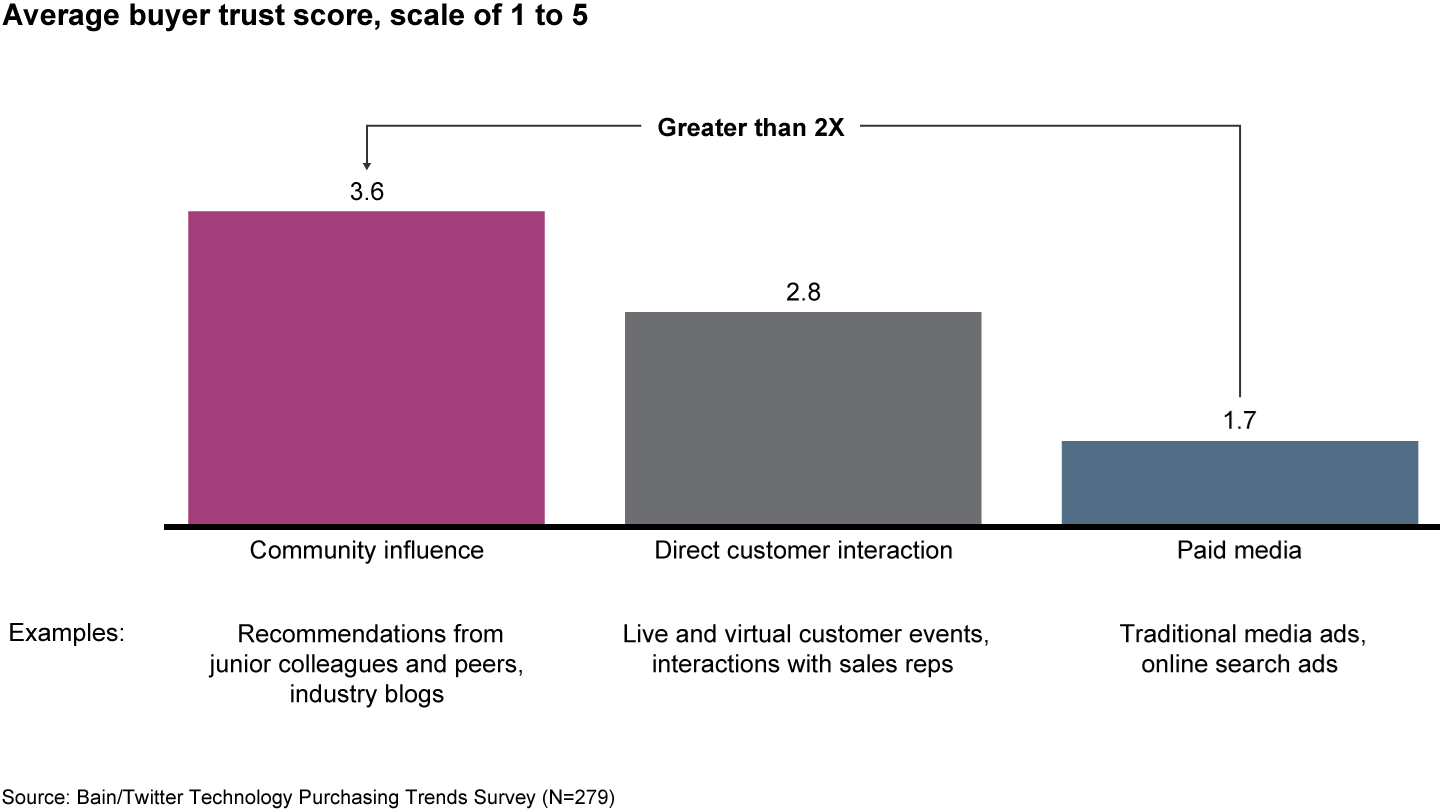
Buyers rely on community information, especially from junior colleagues, more than marketers think they do

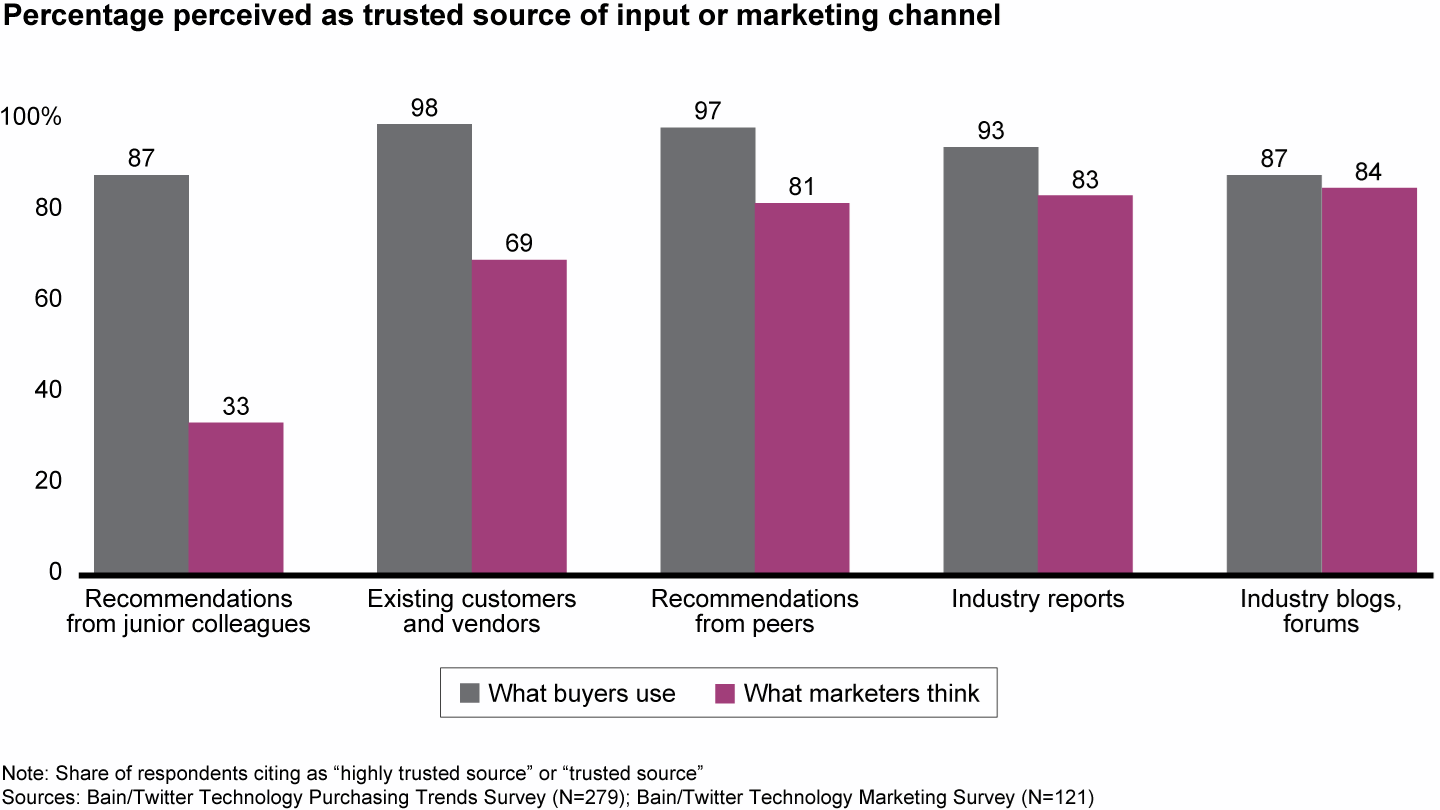
Junior colleagues significantly influence purchasing decisions

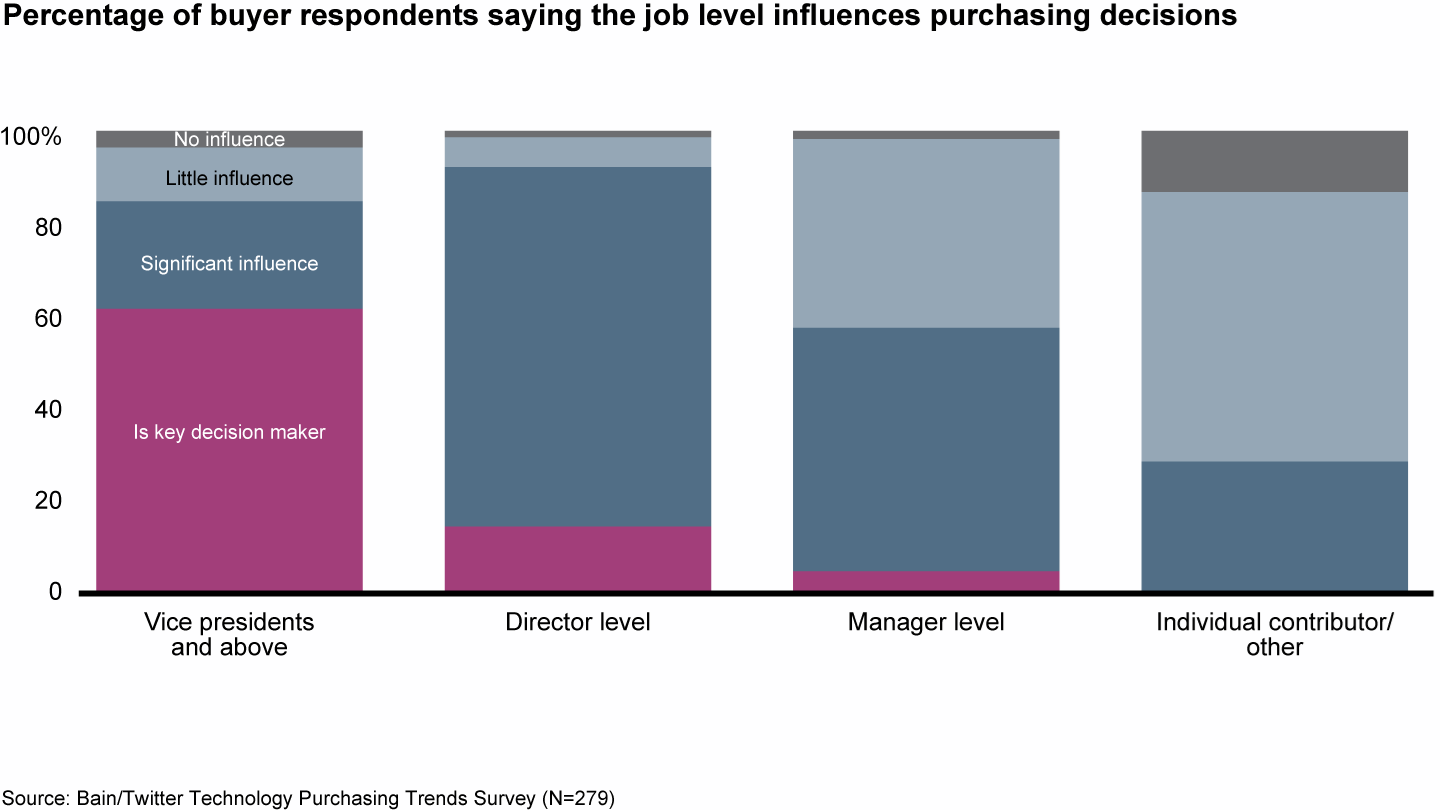
These preferences have become even more pronounced during Covid-19. More than 60% of buyers surveyed are still making technology purchases, and 90% have been educating themselves for future purchases. Moreover, they have relied more on information from their community since the pandemic began (see Figure 4).
During Covid-19, buyers have relied more on community resources

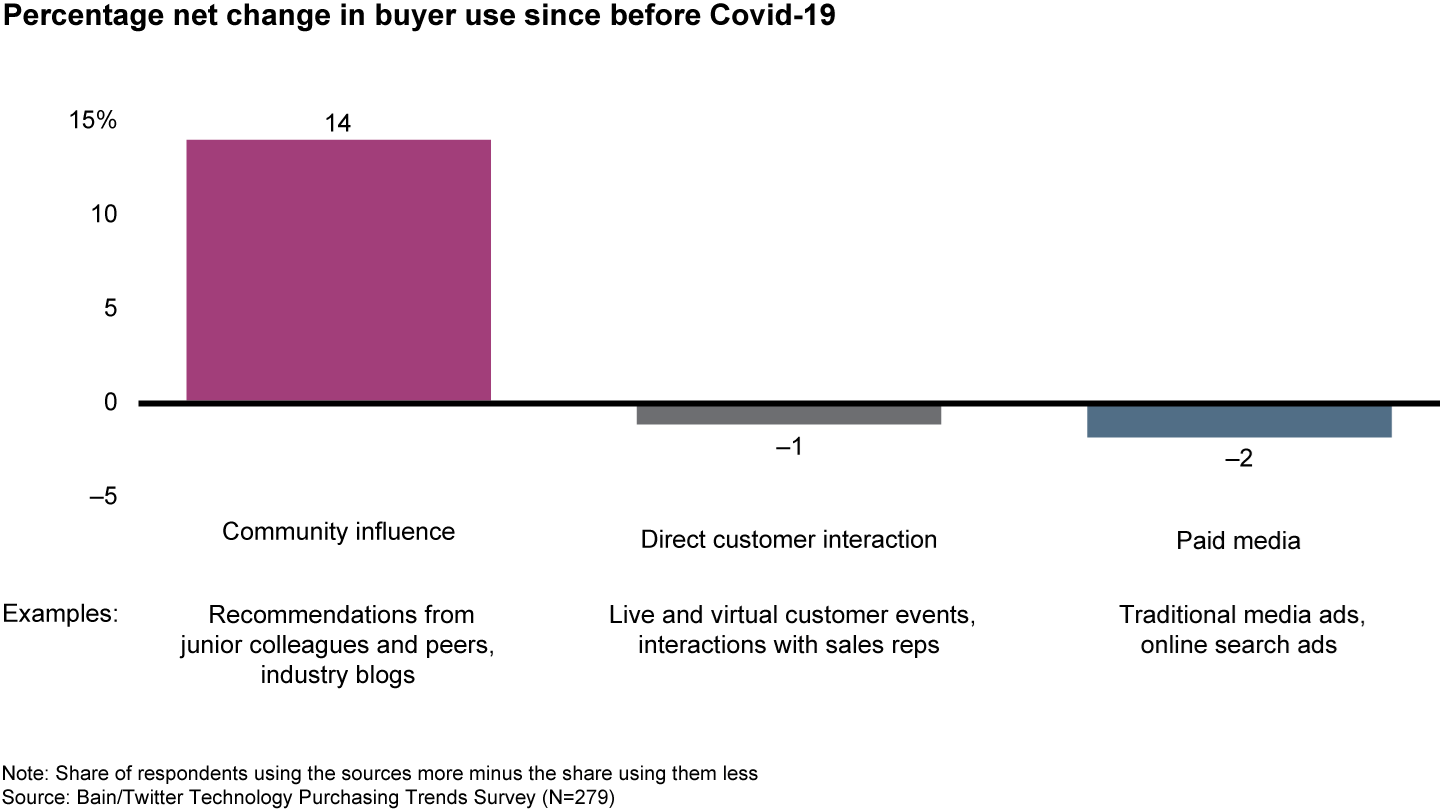
The most successful marketers, defined as companies that increased revenue by at least 10% and market share by at least 3 percentage points over the past two years, have a better understanding of buyer preferences (see Figure 5).
Winning marketers understand buyers’ preferences better than other marketers do

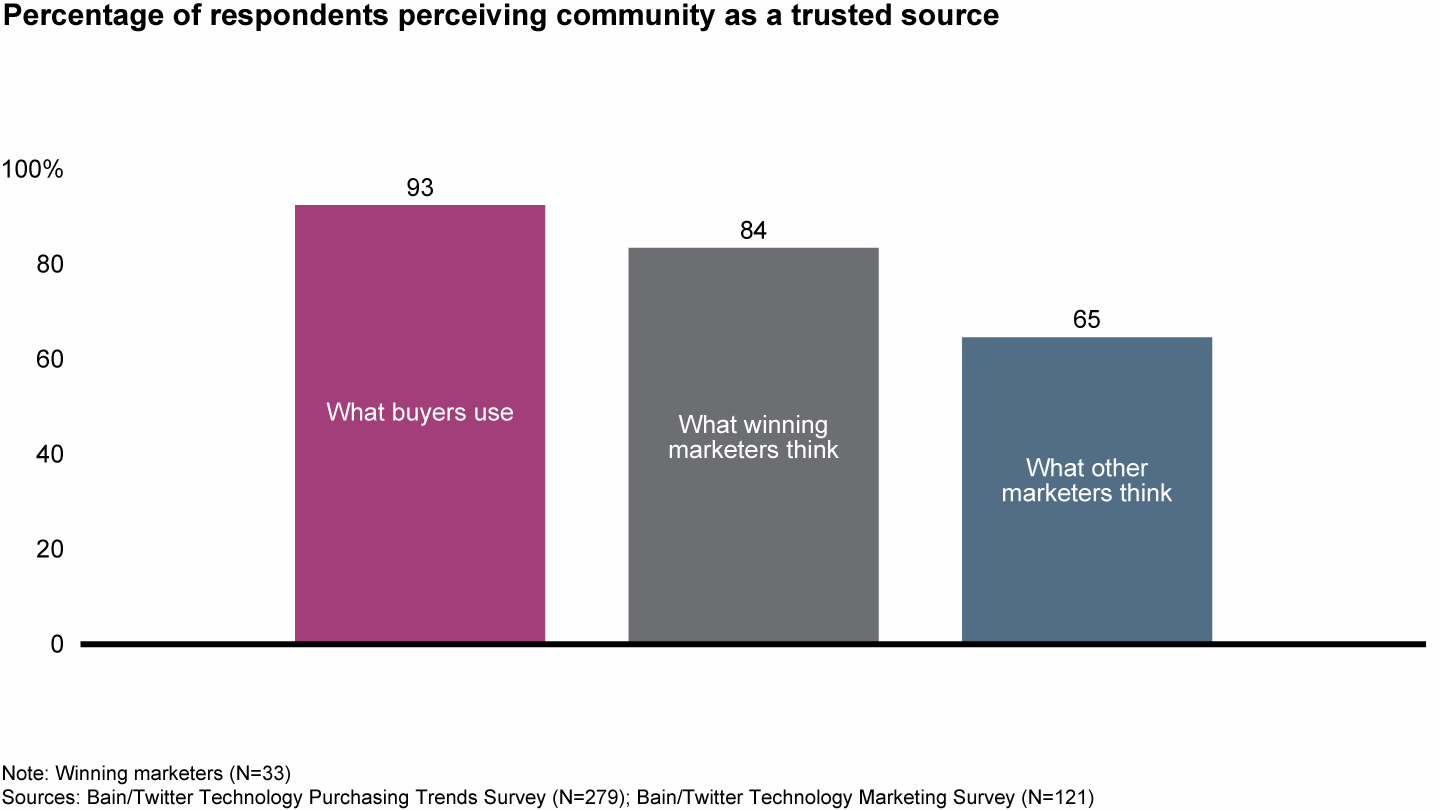
All marketers have switched to more virtual events during the pandemic, with the share of the marketing budget spent on webinars and virtual events rising by an average of almost 60%, respondents reported. Winning marketers, however, have focused their efforts on different priorities in recent months. They are more likely to protect their base by targeting current customers, not new ones, and by focusing on Covid-19–related messaging (see Figure 6).
During Covid-19, winning marketers have focused their resources on different actions than the rest of the pack

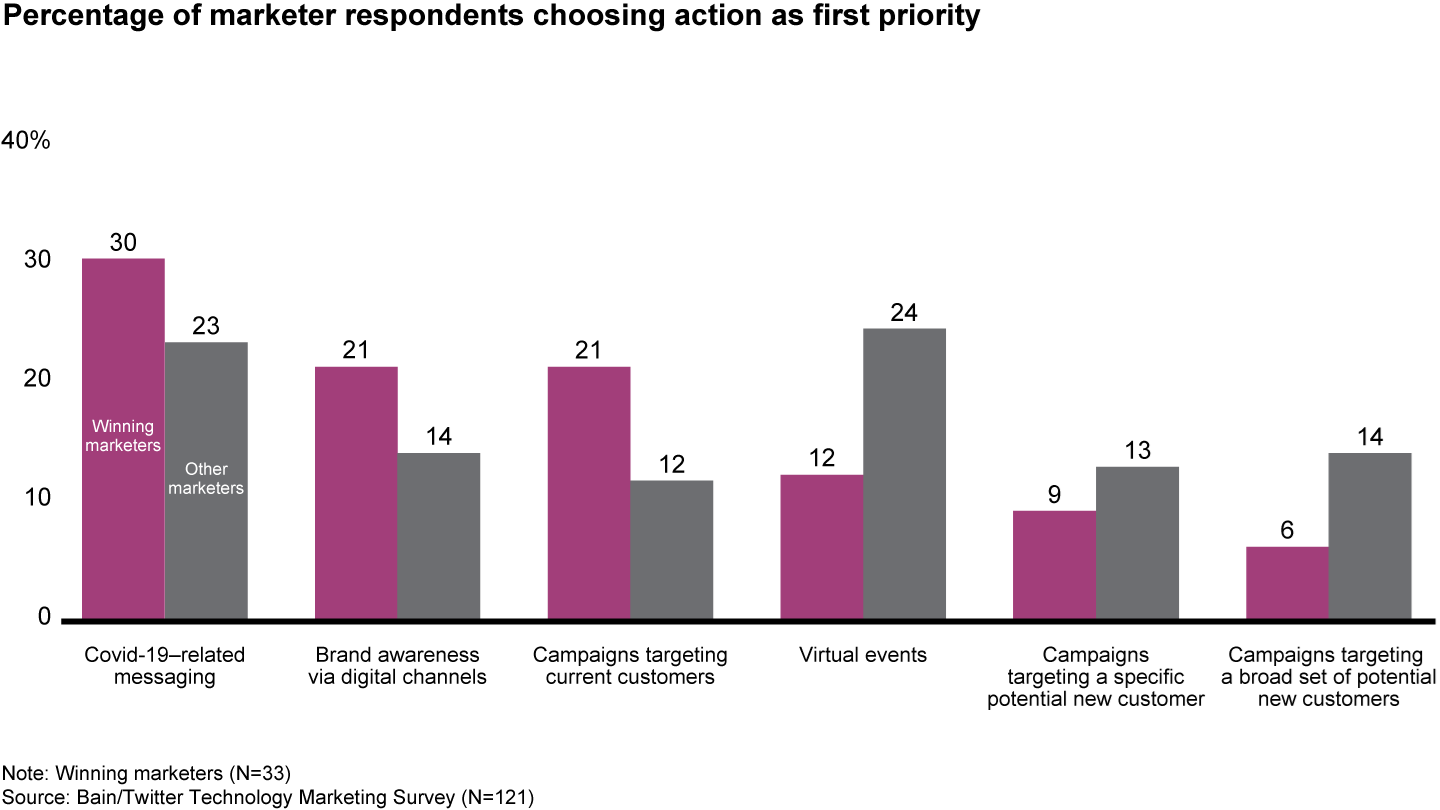
Most marketers recognize the need to build trust with their customers. Our research, however, shows that, in general, they underestimate the power of the professional community. Winning marketers spend greater resources on getting customers to talk to each other and serve as advocates for their brand. They also reach deeper into organizations by connecting with junior team members. Among the specific actions marketers can take to raise engagement are the following.
- Create spaces that generate conversations by developing online user groups or support forums. With its Business Advantage Small Business Community, Bank of America chose not to focus on its own products but instead created a space for small firms that might not otherwise have a way to connect and share ideas, advice and expertise. At the least, marketers should meet communities where they are by joining online forums and engaging in peer interactions on social media.
- Disseminate your insights throughout the professional community. Forums, conferences and other spaces are potential avenues in which to share white papers and other published insights. Salesforce, for instance, engages its community through cornerstone events such as Dreamforce. The company also designs the digital experience of this event to include more junior managers who may not be able to attend in person.
- Fill an unmet need by publishing on areas of expertise, providing access to experts, and offering training, certifications and awards. Anaplan, for example, has nearly 40,000 users who participate in technical support forums as well as an Idea Exchange where users can contribute and vote on ideas to improve products. Anaplan also created an Academy for users to broaden skills through on-demand or instructor-led courses for certifications, and it offers exclusive benefits to those who reach the highest levels of certification.
Some companies manage to execute these three actions consistently. Cisco Systems has a community of more than 900,000 members who share information and answer each other’s questions about Cisco products. Cisco also provides exclusive forums for partners and verified customers, events to give members a chance to connect with experts, and recognition for those who consistently provide outstanding solutions. Finally, Cisco often is cited as a leader in using social media to build community and connect with customers.
Building a powerful community takes authenticity and patience. The goal is not necessarily to generate immediate leads for the sales team but rather to become a credible source and orchestrator in the broader ecosystem in which buyers increasingly discover, vet and choose their vendors.